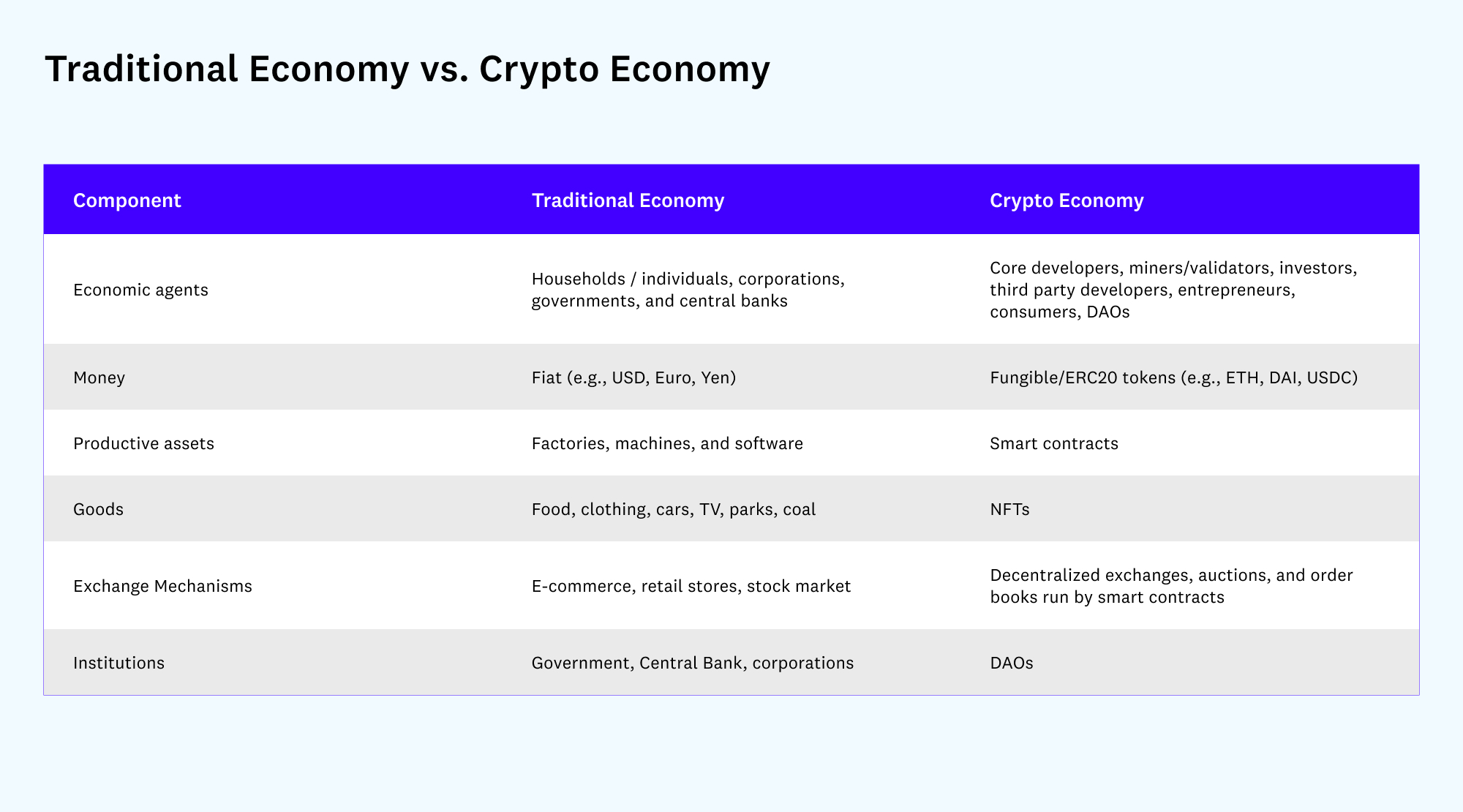Equity tokens are fungible tokens that represent ownership in an asset or a pool of assets. These tokens are used to incentivize participants to provide a scarce resource to a network. In cryptonetworks, scarce resources include capital, developers, customers, creators, and computing power.

